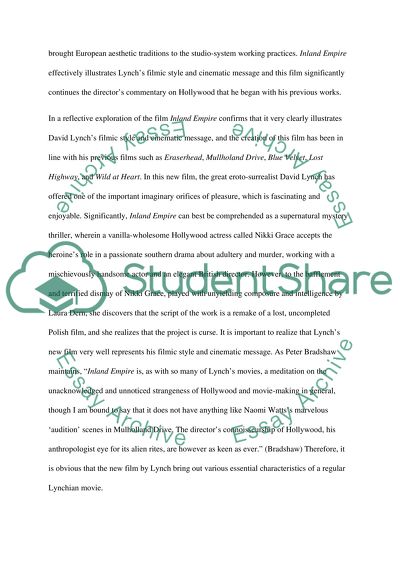Cite this document
(“David Lynch's Inland Empire Movie Review Example | Topics and Well Written Essays - 1500 words”, n.d.)
David Lynch's Inland Empire Movie Review Example | Topics and Well Written Essays - 1500 words. Retrieved from https://studentshare.org/miscellaneous/1505311-david-lynchs-inland-empire
David Lynch's Inland Empire Movie Review Example | Topics and Well Written Essays - 1500 words. Retrieved from https://studentshare.org/miscellaneous/1505311-david-lynchs-inland-empire
(David Lynch'S Inland Empire Movie Review Example | Topics and Well Written Essays - 1500 Words)
David Lynch'S Inland Empire Movie Review Example | Topics and Well Written Essays - 1500 Words. https://studentshare.org/miscellaneous/1505311-david-lynchs-inland-empire.
David Lynch'S Inland Empire Movie Review Example | Topics and Well Written Essays - 1500 Words. https://studentshare.org/miscellaneous/1505311-david-lynchs-inland-empire.
“David Lynch'S Inland Empire Movie Review Example | Topics and Well Written Essays - 1500 Words”, n.d. https://studentshare.org/miscellaneous/1505311-david-lynchs-inland-empire.


